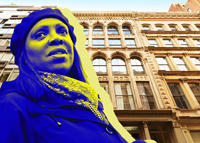UPDATED November 4, 2020, 12:19 p.m.: New York City condo investors may increasingly find themselves having to dig into their wallets to pay for any construction defects, according to a new court ruling.
The Appellate Division of state court upheld a ruling last week that a condominium board does not have to prove a fiduciary or confidential relationship between itself and the building’s sponsor when suing over construction defects.
The ruling, if it stands, will make it easier for condo boards suing over construction defects to claw back money that investors earned from the project, according to condo attorneys.
Read more


The ruling came as part of years-long dispute over construction defects between the condominium board at a Financial District building and Louis Greco’s Second Development Services and other sponsor entities involved in the development.
Located at 90 William Street, the condo, dubbed Be@William, has 113 residential units and two commercial units. The building was completed in 2008 with a projected sellout of $97 million.
But the condo board began complaining about construction defects as early as 2010. The board’s initial suit alleging shoddy work, filed in 2013, led to last week’s Appellate Division ruling.
“This is a critical decision,” said Steven Sladkus, a partner at Schwartz Sladkus Reich Greenberg Atlas, which represented Be@William’s condo board in the case.
“Investors must now be extremely cautious about the quality of the developers with whom they work as the investors are liable for shoddy construction,” he continued in a statement.
The decision reverses a 2013 ruling, made in the same court, that a condo board needed to prove a connection to investors to recoup funds from them for shoddy construction.
That is difficult because in many cases in New York, a condominium is developed by a single-purpose entity formed to construct the building, sell units and then distribute the proceeds to investors. Once the entity sells out the building, it pays the investors and closes up shop.
That leaves condo buyers with few options to seek damages for shoddy work because the entity, even if it still existed, would typically have no money left. If the board tried to go after a project’s investors, under the 2013 ruling, it would have to prove there was a relationship, which was often impossible.
“Since there was never a relationship between the board and investors … those claims would hit a dead end,” explained Jared Paioff, a partner at SSRGA, in an interview. “It’s like squeezing blood from a stone.”
Now that the 2013 ruling has been reversed, Paioff said there’s an opening for any claims over the past seven years that were stymied because condo boards could not prove a relationship with investors.
“We now have the option to ask a court to reconsider that holding, and, based on this new case that came down last week, reverse its decision,” he said.
Not all attorneys agree, however. “The reach of this case is probably not as far as one would think because the affirmative and absolute language in the Be@William offering plan is not very common,” said Leni Morrison Cummins, an attorney at Cozen O’Connor who focuses on representing condominium and co-op sponsors and boards.
At the FiDi project, Be@William’s condo board is seeking $3 million in damages from investors in the project, which included Greco, his wife and his firm, Second Development Services. The amount the board can recoup from the investors will be decided at a trial, which has yet to be scheduled, according to Paioff.
Lawyers representing Be@William investors and SDS did not immediately return requests for comment.
Update: Comment from Cozen O’Connor’s Leni Morrison Cummins was added to the story.
